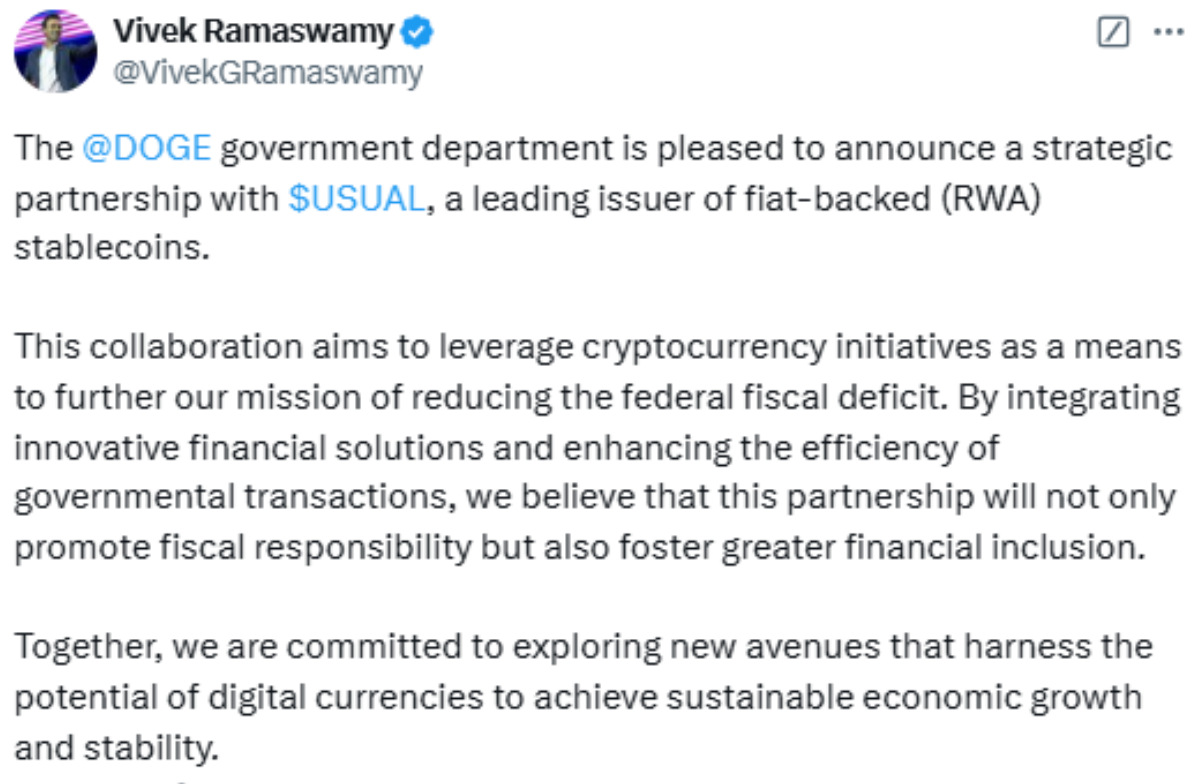Vivek Ramaswamy X Account Hacked, Posts About Partnership With Stablecoin Issuar

In a bizarre twist, Vivek Ramaswamy, a notable figure in the Trump administration, found his X account compromised and hacked. This led to a post from the hacker using his account to post about a fictitious partnership between the U.S. Department of Government Efficiency (DOGE) and the stablecoin issuer USUAL.
The false post, which was swiftly deleted once the hack was acknowledged, claimed that this supposed collaboration would tackle the federal deficit through the adoption of digital currencies. It painted an ambitious picture where stablecoins like those from USUAL would be integrated into government operations to enhance efficiency and fiscal responsibility. However, this was nothing more than a well-crafted illusion, designed to mislead and possibly deceive unsuspecting followers into believing in a non-existent government initiative.

The Reality Behind the Hack
The reality, however, is starkly different. The U.S. Department of Government Efficiency, named fondly after the Dogecoin cryptocurrency, has no current plans or affiliations with stablecoin issuers like USUAL. Instead, their focus is on a more mundane yet crucial task: to cut government spending and waste.
The incident with Ramaswamy's account serves as a warning about the security of personal and public figures on social media. Hackers are increasingly targeting such platforms, not just for the thrill of the hack, but to manipulate market perceptions or to push scams under the guise of legitimate announcements. This particular hack aimed at leveraging Ramaswamy's influence to perhaps inflate the perceived value or credibility of USUAL's stablecoin offerings.
The swift action to delete the post suggests a quick response from Ramaswamy or his team, yet it also opens up discussions on the need for stronger security measures for public figures on social media. The potential for such hacks to cause real-world financial or reputational damage is significant, especially when they involve announcements that could sway markets or public opinion.

